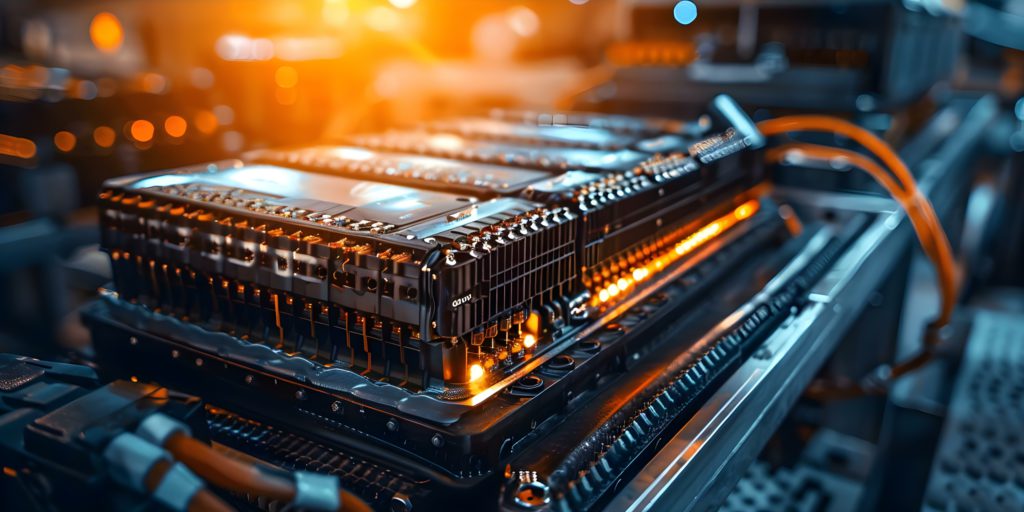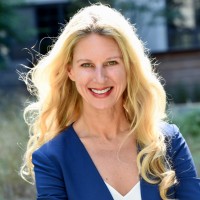Vanadium is the new battery cathode chemistry, says Pure Lithium CEO
Amanda Stutt | September 20, 2024

In labs all around the world, scientists are striving to perfect EV battery cathode chemistries – swoping out and switching up minerals in search of the most viable, economical, safe alternatives to provide the highest energy density at a cost that could be manufactured at scale.

While the most common cathode chemistries used in lithium-ion batteries today are lithium-iron-phosphate (LFP), nickel-cobalt-manganese (NCM) and lithium nickel cobalt aluminum oxide (NCA), Pure Lithium (PL), a privately held, Boston-based startup, says it has invented a unique lithium metal battery that swops nickel and cobalt for vanadium.
The company says it has found a way to make lithium batteries from scratch going from “from brine to battery” in less than 48 hours.
“We’ve taken lithium from four continents around the world and have made it into a pure metal electrode,” co-founder and CEO Emilie Bodoin told MINING.com in an interview. “We’re not that particular about the lithium source because our technology and our end product is very different than what everyone else is doing.”
In July, Pure Lithium won the startup Coup de Coeur Award at the World Materials Forum for its battery-ready lithium metal electrode and received the best new project award at Fastmarkets, competing against several more mature companies.
Occidental subsidiary TerraLithium, through its joint venture with Berkshire Hathaway invested $15 million, Bodoin said, adding that Canadian firm E3 Lithium has been supplying the company with concentrate for two years.
Vanadium – the game changer
The disruptor in PL’s chemistry, Bodoin says, is vanadium.
The company pairs its lithium metal anode with a vanadium oxide cathode that was invented by Nobel Prize winner Stan Whittingham, a key figure in the history of Li-ion batteries.
The company’s intellectual property portfolio (73 patents pending) includes a joint patent application with Professor Whittingham, who did the testing to demonstrate the better safety profile, Bodoin said.
“It works, and that’s what we’re using. It’s a simple concept. What we’re doing is so different than any other company,” Bodoin said.

Emilie Bodoin, CEO, PL.
Image from LinkedIn
While vanadium, a naturally occurring mineral found in many uranium mines, doesn’t get a lot of attention, it is more abundant than nickel in North America and readily available in the US, which alleviates supply chain clogs.
There are active projects in Nevada – the Gibellini vanadium project, owned by Nevada Vanadium, which in August merged with Flying Nickel Mining, completed the federal permitting process last year for what could be the first primary vanadium mine in the US.
US uranium producer Energy Fuels is also producing commercial levels of high purity vanadium at its White Mesa Mill in Utah.
“You don’t hear a lot about vanadium –– it’s going to be the new cathode chemistry. It’s pretty perfect for lithium metal. And you can fit two lithium per one vanadium in it, and it won’t release oxygen. The stuff is so stable at temperature, it’s better than LFP. It’s better than anything,” Bodoin said.
“We have a very smooth, even elementally pure piece of lithium. So you’ve just taken a ton of cost and processing and travel out of the biggest problem with the battery.”
Scaling up Boston manufacturing facility
PL is scaling up its facility in Boston to manufacture, and Bodoin said the company will continue to demonstrate going from brine to battery by taking E3’s lithium concentrate, making it into electrode and making the battery in the same facility, which it aims to have up and running in the next 12 to 16 months.
“We’ve made our same batteries work from four different continents worth of lithium to prove that we have a very robust production system,” Bodoin said. “The battery has to be really cheap, or no one’s going to want to buy it.”
The CEO, who has been in the battery space for over 12 years, looks to the future in a highly competitive market with confidence.
“If you’re a DLE company on shark tank with me, you can’t compete because I’m making a whole battery and all the components for the battery. So, you’re just not going to win.”
While vanadium, a naturally occurring mineral found in many uranium mines, doesn’t get a lot of attention, it is more abundant than nickel in North America and readily available in the US, which alleviates supply chain clogs.
There are active projects in Nevada – the Gibellini vanadium project, owned by Nevada Vanadium, which in August merged with Flying Nickel Mining, completed the federal permitting process last year for what could be the first primary vanadium mine in the US.
US uranium producer Energy Fuels is also producing commercial levels of high purity vanadium at its White Mesa Mill in Utah.
“You don’t hear a lot about vanadium –– it’s going to be the new cathode chemistry. It’s pretty perfect for lithium metal. And you can fit two lithium per one vanadium in it, and it won’t release oxygen. The stuff is so stable at temperature, it’s better than LFP. It’s better than anything,” Bodoin said.
“We have a very smooth, even elementally pure piece of lithium. So you’ve just taken a ton of cost and processing and travel out of the biggest problem with the battery.”
Scaling up Boston manufacturing facility
PL is scaling up its facility in Boston to manufacture, and Bodoin said the company will continue to demonstrate going from brine to battery by taking E3’s lithium concentrate, making it into electrode and making the battery in the same facility, which it aims to have up and running in the next 12 to 16 months.
“We’ve made our same batteries work from four different continents worth of lithium to prove that we have a very robust production system,” Bodoin said. “The battery has to be really cheap, or no one’s going to want to buy it.”
The CEO, who has been in the battery space for over 12 years, looks to the future in a highly competitive market with confidence.
“If you’re a DLE company on shark tank with me, you can’t compete because I’m making a whole battery and all the components for the battery. So, you’re just not going to win.”
No comments:
Post a Comment